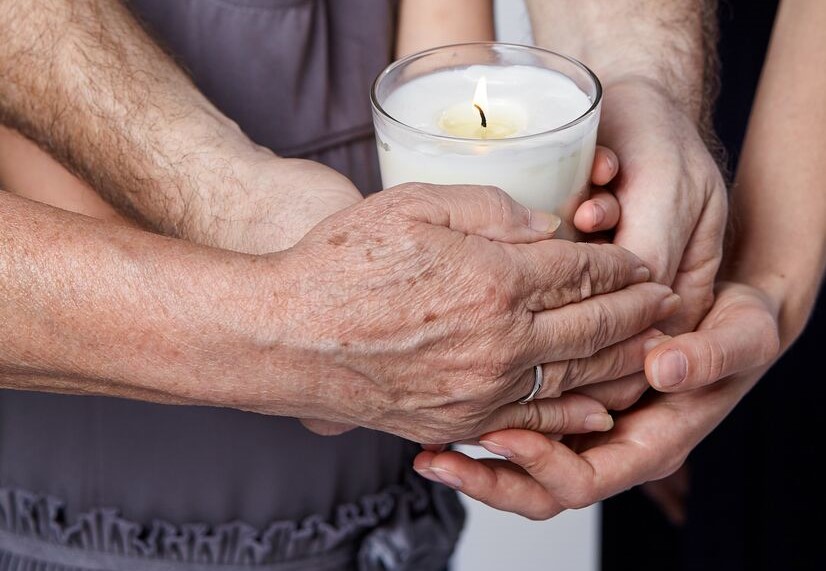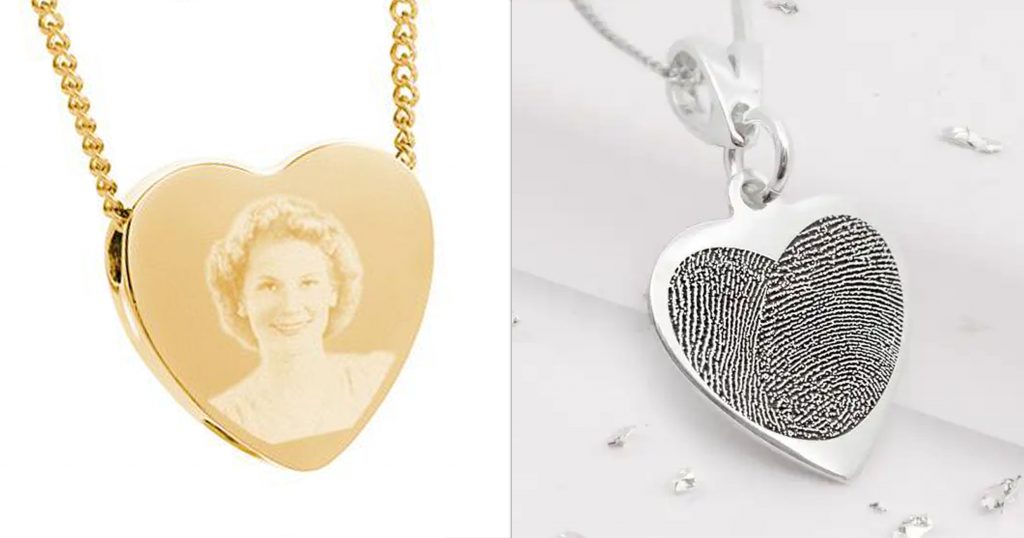When someone you care about dies, you experience something that is a normal response. This is what we all call grief. Grief is not just one feeling, it usually involves a range of different feelings and responses. It is not something that you experience and then get over. And it is not something that everyone experiences the same. Everyone feels grief differently and there is no right or wrong way to grieve. Let’s have a little look at what grief is, how it might present itself and ways that you can deal with the grief you are feeling.
What is grief?
Grief, put simply is a natural reaction to loss. It brings with it strong and sometimes overwhelming emotions. These emotions vary from person to person and vary in intensity and longevity. It comes about when your mind, body and emotions react to a loss and dramatic change in your life.
That loss has permanently changed your life, so grief is now something that is a part of you and your life. You do not ever move on from grief or get over it. It is something that you move forward with now as a part of life. But its intensity will change and lessen over time. There will be hours, days, and weeks, even months and years when your grieving for your loved one will come and go. They say grief is like an ocean. It comes in waves, ebbing and flowing. Sometimes the water is calm and sometimes it is overwhelming. And all you can do is learn to swim with what you are facing.
But that’s Ok. You will learn to live with the loss and grief you feel and you will still be able to have a happy fulfilled life even though you have grief for someone who is no longer with you. Always remember that grief is the price we are all willing to pay to love and have people and connections in our life.

Common elements of grief
Grief can be all-encompassing and present itself emotionally, physically and mentally. Here are a few common ways grief presents itself, in the aim of showing you that you are not alone in what you are going through and what you are experiencing is quite normal.
Physical responses of grief
When grieving you may experience a variety of physical reactions from headaches, achy muscles and even nausea. Your sleep may be interrupted. You may feel tired but struggle to sleep and settle and have disturbed sleep at night. You may have a loss of appetite and no desire to eat. Of course crying is another physical element of grief. If you need to cry, do so. But don’t worry if you’re not crying. We are all different. Some people cry easily, others don’t have this physical reaction. That’s OK.
Emotional responses of grief
You can feel a vast array of emotions. They can come and go at different times. Some emotions you feel are obvious emotions with grief, such as sadness, disbelief and a heightened feeling of loneliness. Emotions can also take you a little by surprise. You can even feel anger, despair, and guilt. Blaming yourself is a common phase of grief, even going through a period where you feel anger towards the deceased in such thoughts as ‘How could you leave me?’ or ‘Why did you go?’ It’s important to acknowledge these feelings and don’t feel bad for having them.

Mental responses of grief
People grieving often say that they just can’t think straight. They begin to experience forgetfulness, a lack of concentration, confusion of thought and poor memory. Expressions such as feeling I’m feeling foggy, numb or in a daze are common mental thoughts of grieving people.
Social responses of grief
It is understandable that you might not want to go out or be around people. Wanting to be alone is quite common. Other people feel they must live up to the idea of being strong and put on a brave face for everyone. Keeping yourself extra busy and doing things is common in this situation.
Stages of grief and the grieving process
There is a traditional argument that there are stages of grief that you go through after the loss of a loved one. However, reality shows that grief is not so clear cut and these stages come and go at different times in different ways for each person. Commonly someone grieving will experience some or all of the following stages:
Immediately after a death you may go through a stage of feeling numb, the reality of the situation doesn’t really set in and you are surviving on a sort of autopilot each day. That’s OK. This numbness or denial is protecting you through a really difficult time which you just don’t know how to deal with. Allow this stage. It is protecting you while you begin to slowly come to terms with the reality of your loss.
Often emotions then start to come out. Sadness is the most obvious emotion that comes to the fore. A deep longing to have your loved one back and a feeling of despair is often common. You wonder how life can continue without them and often you find yourself crying and not having control over your crying. This sense of pain and emptiness can be quite overwhelming at the beginning. It might never go away completely. As with any stage of grief allow this to happen. Don’t try and pretend there isn’t sadness. Face it, accept it and then begin to bring strategies in place to move through the deep sadness. As time passes you may begin to feel whole again, even though a part of you is missing.
You might be a little surprised to know that it is common to go through a stage of anger. You ask questions like WHY – Why did this happen to me? Why did they have to die? Your anger can be directed at yourself, your loved one or others around you. Know that this is normal but be careful not to remain in this stage. Be mindful of directing your anger where blame does not lie. Really in most situations no one is to blame. Recognise your anger, but then use strategies to process it and move forward.
Some people feel guilt. As a result of losing control of a part of your life you try and take back control. People do this by blaming themselves for lots of big and small things.You wish you could go back and change things you did or said, or didn’t do and say. It is important to know that feeling guilty is very common and to try not to dwell on it. Remind yourself that sometimes life is just out of your control.
Acceptance is the stage we are aiming to come to. It can be quick or can take months or years, but it can and will come. This doesn’t mean you will necessarily feel happy again. But it does mean you will begin to feel able to cope with the death of your loved one. You can enjoy things in life again and feel that life is worth living. Eventually, you will be able to think about the person who died and it won’t be as painful. This doesn’t mean in any way that you have less feeling for the person who has died. You will always remember and love them for what you shared together.

Tips for dealing with your grief
First, Accept your feelings. Always remember that you have permission to grieve and you have permission to grieve in whatever way it presents itself for you. It’s important you accept this. Stifling grief or your feelings don’t make them go away, they only bury them to come out later in other situations and in other, often, not positive ways. Acknowledging grief is vital.
Keep talking about your loved one. This is so important. Just because they are no longer physically with you it doesn’t mean you need to erase them from your life. It is important that you acknowledge their death in talk with others but keep talking about their life also. This will come more naturally as time goes on, but please just try and keep talking. Shutting down is an easy way to isolate yourself and make you feel more alone.
Take care of yourself physically. Eating well, exercising and getting plenty of rest helps will help you get through each day and move forward. Try and get back to some of your normal daily routines as soon as you feel able to, one at a time. Don’t feel guilty for this. Life does go on and you need to begin to learn to live your life in a new way. Don’t rush it and suppress any grief as a result, but begin to get into a new daily routine as soon as you feel able to.
Remember and celebrate the life of your loved one. Hold a memorial service or celebration of life for them. Keep photos of them around the home. Continue to do some of their favourite activities.
It’s important to keep sharing their stories and include them in your family and friend gatherings. Don’t pretend they never existed to avoid facing hard emotions. This may feel overwhelming and bring your grief to the fore, but these are times of acknowledgment and healing. Remember your goal is to, over time, accept and understand your loss and live a fulfilled and happy life, holding onto the memories you cherish of your loved one.
Keepsake jewellery
You might like to have memorial jewellery pieces custom made so a piece of your loved one can remain close to you at all times.
Memorial jewellery makers Keepsake Jewellery has a range of pendants that open with a small screw to hold a pinch of ashes inside. Some can even be engraved with your loved one’s photo. They are even suitable for a pet’s ashes.
Diamonds are forever, so why not have some of your loved one’s remains turned into diamonds for an everlasting personal keepsake. Heart in Diamond creates beautiful diamonds from your loved one’s hair or ashes so you can hold on to your special memories of them always.
Or for a keepsake that is just as unique as your loved one, Ashes Memorial Jewellery in the UK can create custom pendants, rings and other pieces that are delicately touched by your loved one’s fingerprint. The jewellery is handcrafted in sterling silver and can be beautifully engraved to bring you joy and comfort for many years to come.

Grief help and support
Feeling everything we have spoken about above is natural and all part of the process of grief. However, if your feelings are overwhelming please don’t feel you need to deal with them alone. There are many people out there available to help you through your grief.
Family and friends – they are vital. Don’t shut them out. Sometimes just dropping everything on your to-do lists and having some time expressing your grief with loved ones is such a healing experience. Remember you are all grieving, so support each other as much as possible.
Your GP – Have a chat with your GP if you feel your grief is overwhelming or you are struggling with the physical symptoms you are experiencing. They can assist and also give referrals to other support such as counselling.
Professional Help – There is nothing wrong with reaching out for help. You don’t have to pretend to be coping if you feel you aren’t. There are so many wonderful services available to you. A place to start would be the Australian Centre for Grief and Bereavement, providing excellent information on bereavement services available throughout Australia.
For more immediate help call Lifeline on 13 11 14. More information on grief support is available on the Bare Cremation website, including our list of grief counselling and support services across Australia and the article What to do when someone dies.
Remember life will never be the same after a loved one dies, but it doesn’t mean that life doesn’t have value and happiness. Grief is a process that teaches you how to live and love in a new way, holding onto the memories you have of the person you love. Please be kind to yourself and others through this journey.
If you have any further questions or to get a quote for a cremation visit the Bare website or call 1800 071 176
Disclaimer: This article provides general information only and does not constitute professional advice. Please consult a qualified expert for guidance specific to your situation.





.jpg)

